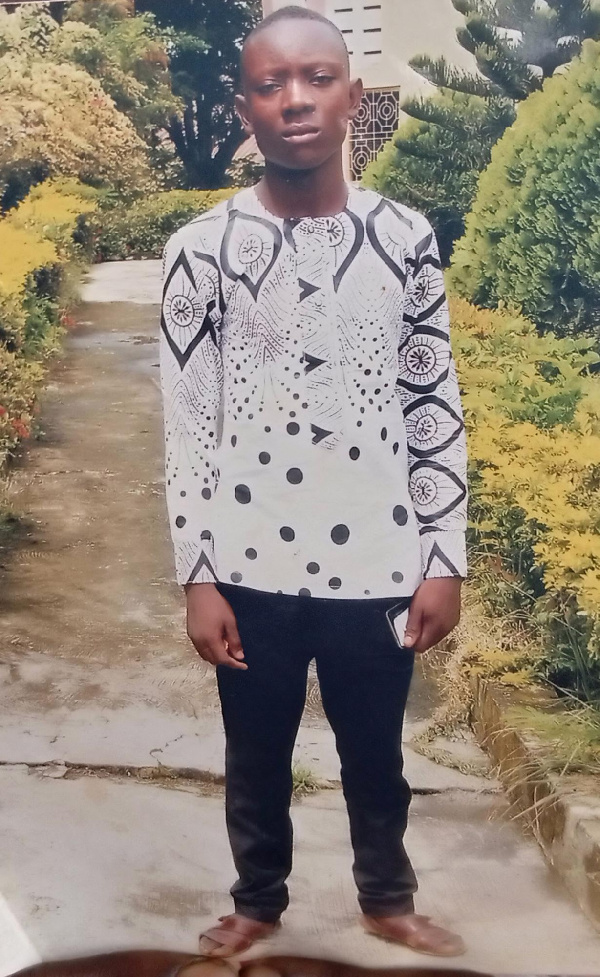Ghana: Police brutalities against student protestors must trigger comprehensive reforms
The Media Foundation for West Africa welcomes the prompt preliminary disciplinary action taken by the Ghana Police Service against three officers who played various roles in the police assault on demonstrating students of the Islamic Senior High School.
It is reassuring that the police authorities have admitted that “the conduct of officers who responded to the protest by the students fell short of the professional police conduct on crowd control.”
Nevertheless, we urge the police administration to pursue to its logical conclusion the promised investigations into the June 13, 2022 incident which resulted in about 25 students and some policemen being taken to hospital to be resuscitated or treated for various injuries.
It was yet another catastrophic piece of policing which saw security officers throwing pepper spray and firing warning shots to disperse a crowd of protesting students. The demonstrators had blocked the road in front of their school in protest against frequent accidents on that portion of the road that stretches from Abrepo Junction down to Barekesse in Kumasi, capital of the Ashanti Region.
Initial reports of the police attack on the student protesters threw the entire country into alarm as anxious parents, the Inspector General of Police, and some Muslim chiefs rushed to the school. Fortunately, the toll was limited to the respiratory distress and injuries which were successfully handled by the various hospitals to which the victims were rushed. All the victims have been discharged and calm has returned to the school, according to statements issued later in the evening of the fateful day by the Police and the Ghana Muslim Mission, founders of the school.
The Ghana Police Service further announced the interdiction of the Acting Ashanti Regional Police Commander, DCOP Kwasi Akomeah-Apraku, and two other officers over their management of the chaotic scenes. The two others are ACP George Ankomah, the Regional Operations Officer; and ACP Alex Cudjoe Acquah, the Commander for Suame, Division where the Islamic Senior High School is located.
Also, the Inspector General of Police (IGP), Dr. George Akuffo Dampare, has met with the students and assured them his outfit will do all it can to protect them. The Regional Administration has also announced it is liaising with the Department of Urban Roads to construct the speed rumps demanded by the students to curb the accidents.
While all the prompt disciplinary action and the pledges from the Police and political authorities are reassuring, they should not lull the country into any illusions. On the contrary, this one more incident of police overreaction to protests should lead to a sober national reflection and introspection on the capacity and professionalism of the Ghana police regarding crowd control.
This incident comes in the wake of several botched crowd control operations that have led to fatalities in recent times.

On May 17, 2022, for instance, the police shot and killed Victor Owusu, a 19-year-old student bystander, in an effort to quell a violent protest by some youths of Nkroranza in the Bono East Region. Protesting against the killing of a local young man who was in police custody, the irate youth attacked the police post and the police opened fire killing the teenager. Some protesters were injured in the violence.
On June 29, 2021, a joint police and military team made a fatal mess of a mission in Ejura in the Ashanti Region when they killed two protesters. The protest erupted shortly after the burial of a popular social media activist, Ibrahim Anyass Muhammed, alias Kaaka who died after being attacked by some thugs. The security team which had been deployed to the town in anticipation of troubles clashed with the protesters.
The catastrophic crowd control by the police in Ejura occurred about six months after Ghana’s 2020 general elections were marred by chaos including fatal police violence. Security forces shot and killed two people in the Techiman South constituency of the Bono Region in one of many rowdy incidents recorded during Ghana’s last election. The police put the total death toll at eight, including other incidents not involving the security services.
The latest attack on students of Islamic senior high is therefore just a symptom of a deep-rooted culture of police impunity which must be tackled head-on. The MFWA condemns the heavy-handed response of the police to a non-violent protest by adolescents. The near stampede as well as the swooning of about thirty students as a result of the reckless use of tear gas, pepper spray, and gunshots by the police cannot be excused in any way.
Demonstrations, assemblies, and processions are part of the democratic channels of expressing opinions including dissenting opinions. The wanton police attacks on demonstrators, therefore violate the right to peaceful assembly and the dignity of the victims.
The recent fatal security interventions in Ghana constitute a violation of the fundamental rights of the victims to life as enshrined under Article 13(1) of the 1992 Constitution, Article 4 of the African Charter on Human and People’s Rights, and other international conventions to which Ghana is a signatory.
In view of the above, the MFWA urges the authorities to ensure the establishment of an independent civilian oversight mechanism to receive and investigate complaints against the police.
We call on the police service to review its crowd control procedures and undertake a comprehensive training of its anti-riot unit in line with the UN-sanctioned Basic Principles on the Use of Force and Firearms by Law Enforcement Officials. These principles, among others, urge governments and law enforcement agencies to develop non-lethal incapacitating weapons for use in appropriate situations, with a view to increasingly restraining the application of means capable of causing death or injury to persons. For the same purpose, the Principles require states to equip their law enforcement officials with self-defensive equipment such as shields, helmets, bullet-proof vests, and bullet-proof means of transportation, in order to decrease the need to use weapons of any kind.
